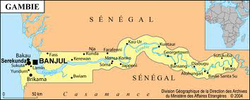Mise à jour : 4 juin 2012 (Rédaction initiale : 22 mai 2012 )
Sur le vif

Mise à jour : 9 mai 2012 (Rédaction initiale : 20 avril 2012 )
Sur le vif

Mise à jour : 9 mai 2012 (Rédaction initiale : 26 avril 2012 )
Sur le vif

Mise à jour : 4 juin 2012 (Rédaction initiale : 22 mai 2012 )
Sur le vif

Mise à jour : 9 mai 2012 (Rédaction initiale : 20 avril 2012 )
Sur le vif

Mise à jour : 9 mai 2012 (Rédaction initiale : 26 avril 2012 )
Sur le vif
